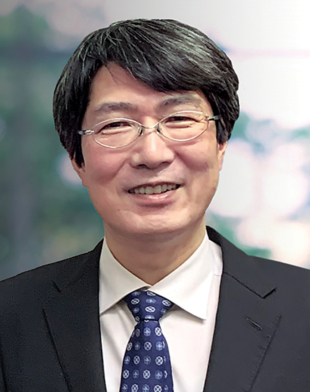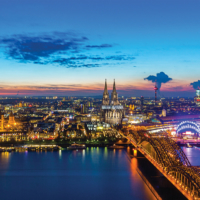Diplomatic ties between Japan and Germany date to the 1800s, with 2021 marking the 160th year of friendship between the two countries. On Jan. 24, 1861, what was then known as the Kingdom of Prussia and the Tokugawa shogunate signed the Treaty of Amity, Commerce and Navigation, an occasion largely regarded as the start of bilateral relations between the two countries. Over a century and a half later, ties between both global leaders are stronger than ever, with a marked Japanese presence specifically in Duesseldorf, the state capital of North Rhine-Westphalia (NRW).
A state of diversity

As of 2019, NRW registered almost 18 million people, making it the largest federal state in Germany by population. It is known as the Diversity State for its multicultural richness, as well as the fact that its rural and industrial regions are in such proximity to each other. While it is renowned for its natural pastoral beauty, it is also a bustling metropolis, teeming with economic activity and innovation.
The Japanese community comprises a chunk of that cultural diversity, with a population of nearly 15,000 nationals residing in NRW. “Because of the long-established Japanese community in this region, NRW offers convenient social infrastructures, such as Japanese schools, restaurants and grocery stores for Japanese expats,” shared Kiminori Iwama, consul general of Japan in Duesseldorf. “Moreover, in our network, we make constant efforts to provide relevant information, such as the investment environment here in this region, to help Japanese companies establish themselves here,” he noted, in reference to NRW being the regional headquarters for Japanese companies.
A spirit of dynamism

Beyond its status as a melting pot of nationalities and its unique character as a suburban metropolis, NRW is a dynamic economic powerhouse, with the largest economy of all the German states in terms of gross domestic product. In 2020, it accounted for 20.9% of the GDP of Germany, despite a slight decline from 2019 due to the COVID-19 pandemic. With an economy that has consistently been compared with that of Switzerland, it’s no wonder that NRW continues to attract Japanese investors, particularly in the chemicals sector, which makes up a third of the industry’s total sales revenues across Germany.
“Companies started their activities in Hamburg, Germany, after World War II. Soon enough, they found that the market is stronger in the western part of Germany. The banks and the trading houses moved to Duesseldorf. It also became a very well-known industrial area — the Ruhr district steel industries, energy and chemical industries and pharmaceutical industries are concentrated here. Japanese companies have also established their businesses here, focusing on research and development, utilization of 5G technology, development of new AI (artificial intelligence) technology, energy storage systems, medical technology, and so on,” said Dai Ueda, director-general of the Japan External Trade Organization, Duesseldorf.
Innovating into the future
With its vibrant present built firmly on the solid foundations of the past, NRW is headed into a stronger-than-ever future. Characterized by a spirit of innovation, the region will undoubtedly remain an economic driving force well into the future, with a robust Japanese presence for years to come.





